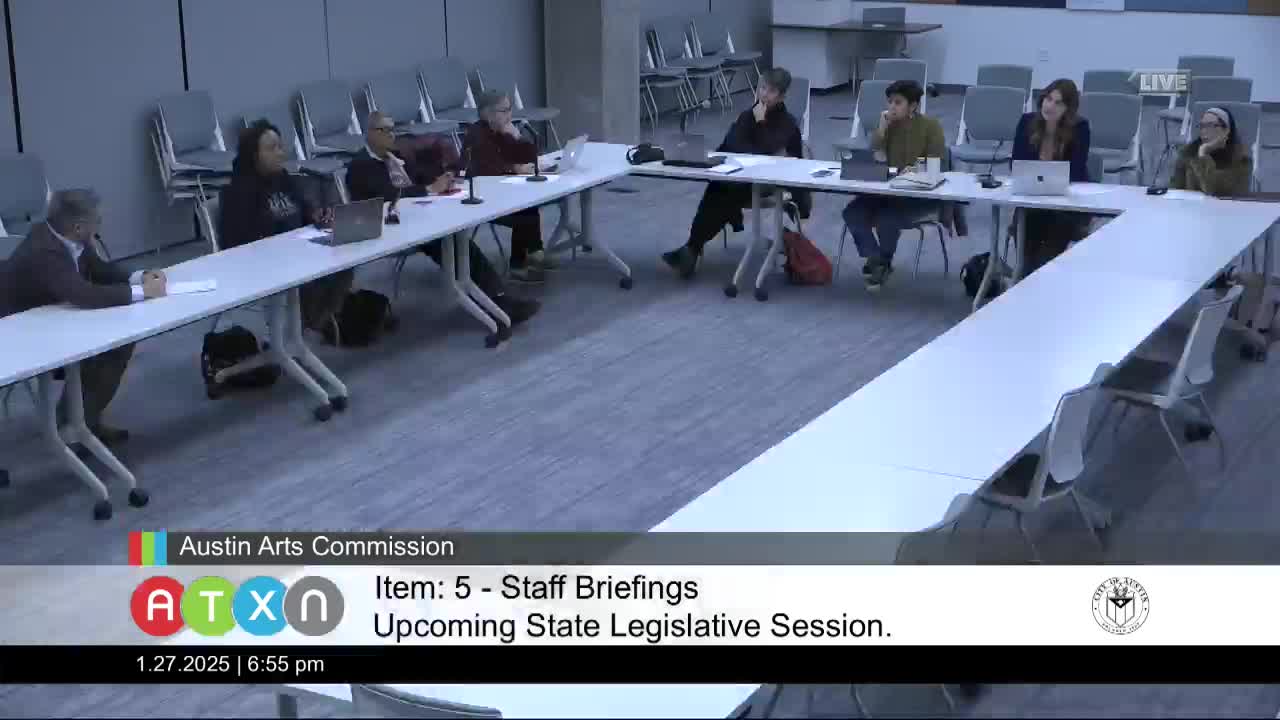MOHA executive director urges arts community to plan for state limits on DEI language and to strengthen grant accessibility
Get AI-powered insights, summaries, and transcripts
Subscribe
Summary
Zach Traeger, executive director of the Museum of Human Achievement (MOHA), urged the commission to prepare for bills restricting DEI language, described MOHA’s grant workshops and urged staff to protect space for community-led approaches and fiscal-sponsorship-informed policies.
Zach Traeger, executive director of the Museum of Human Achievement (MOHA), briefed the Austin Arts Commission on MOHA’s grant application workshops, mentorship programs and concerns about state bills that would ban or restrict the use of certain DEI-related language in public programs.
Traeger said MOHA ran 14 free grant-application workshops in 2024 that led to approximately $140,000 in funding for participants and that 80 attendees were first-time grant applicants. He described the museum’s Touch the Art partnership with the Texas School for the Blind and Visually Impaired and noted MOHA’s mentoring and wraparound training for artists.
Traeger urged the commission and city staff to anticipate legislative change — he referenced a bill he called “SB 689” in the course of his remarks — and to prepare testimonials and advocacy early. He argued that words such as “social justice” and “anti-racism” are being targeted and that arts funders should develop clear intentions and metrics that can be defended without relying on specific contested terminology.
He also recommended that the city consider (a) lower individual award amounts paid more frequently to better support emerging organizers, (b) protections for applicants who rely on public benefits (including allowances for fiscal sponsorship to avoid jeopardizing benefits), and (c) better, replicable training (artist bios, grant writing) so new applicants can build durable skills.
Commissioner response and context
Commissioners praised MOHA’s workshops and emphasized the value of demystifying grant language. Several commissioners said the arts sector is an economic driver but that arts funding should also recognize non-economic values of art. Commissioners and public speakers described the need for plain-language application prompts and accessible technical assistance.
Why it matters
MOHA’s community-facing workshops and mentorship model are presented as a practical approach to increasing grant access. Traeger’s remarks echoed staff and commissioner concerns about pending state legislation and underscored the need to plan—both politically and administratively—for future constraints on program language and priorities.
No formal action was taken on Traeger’s recommendations at the Jan. 27 meeting.
